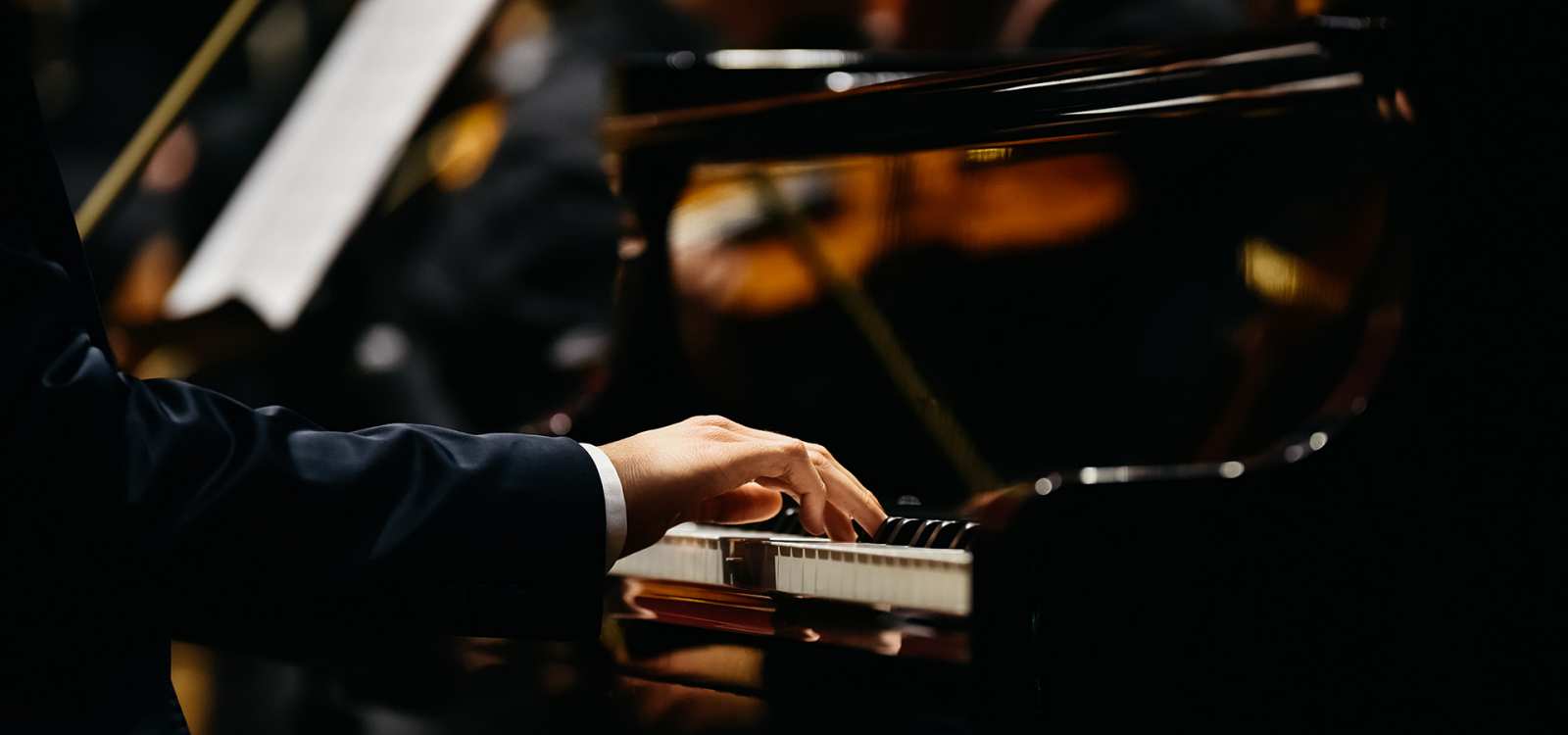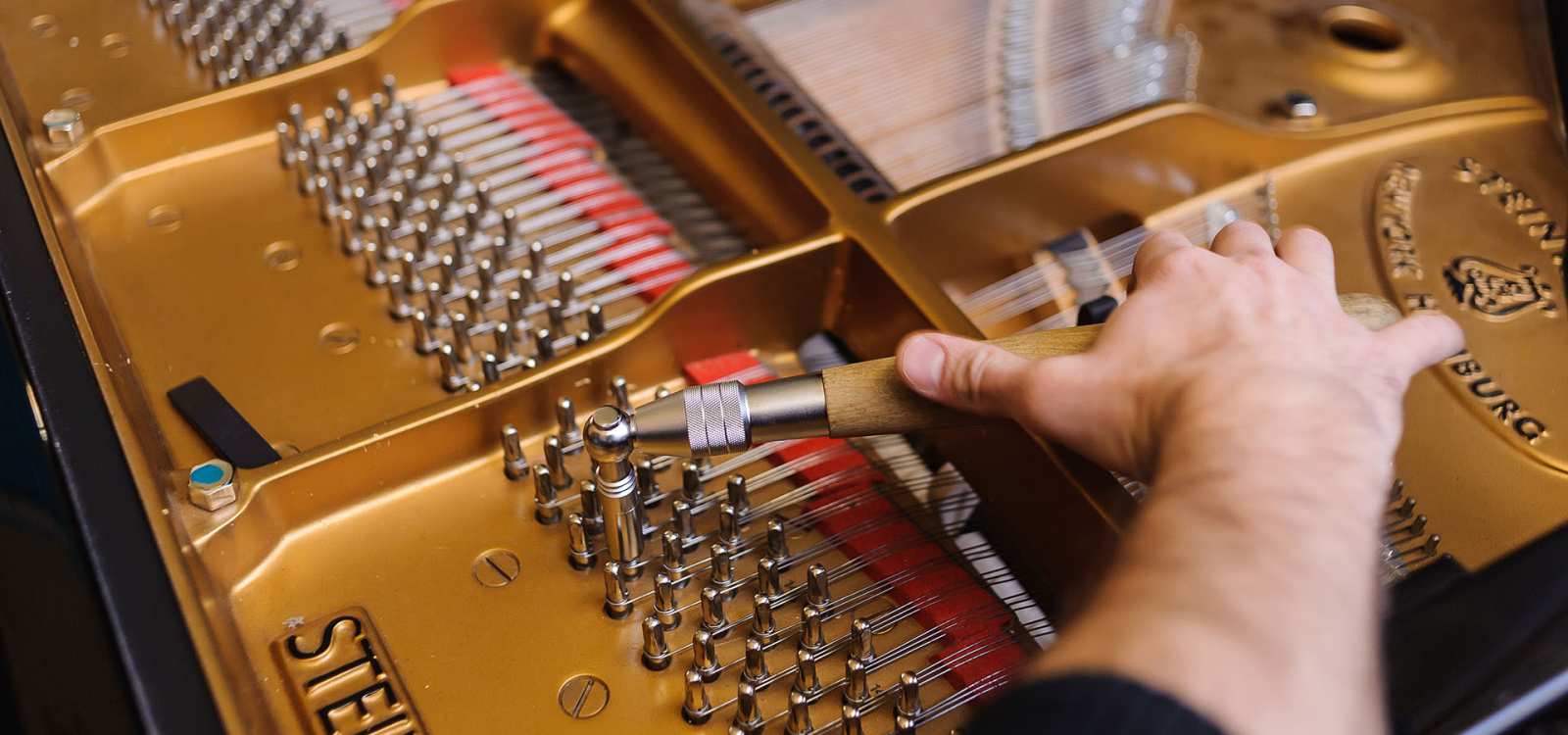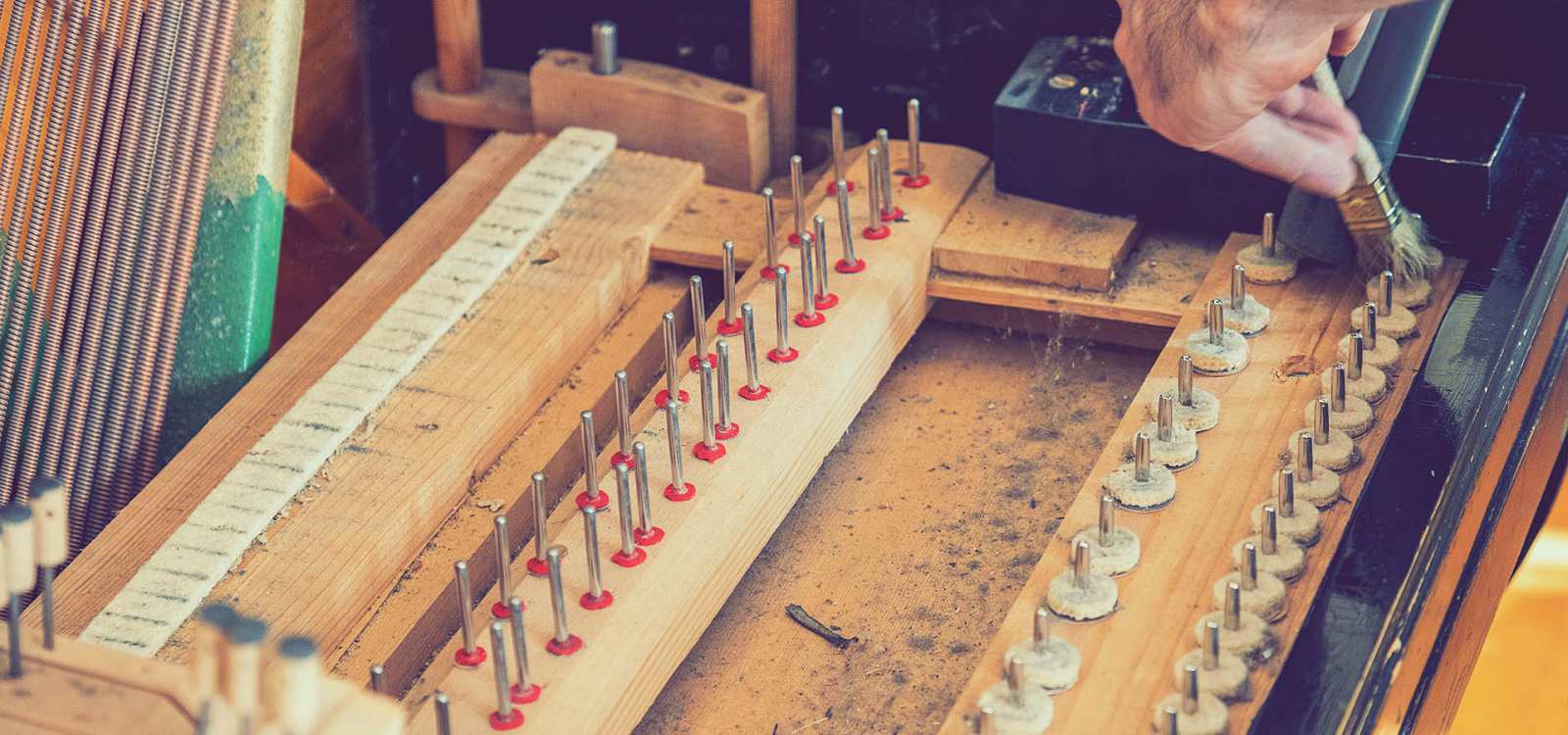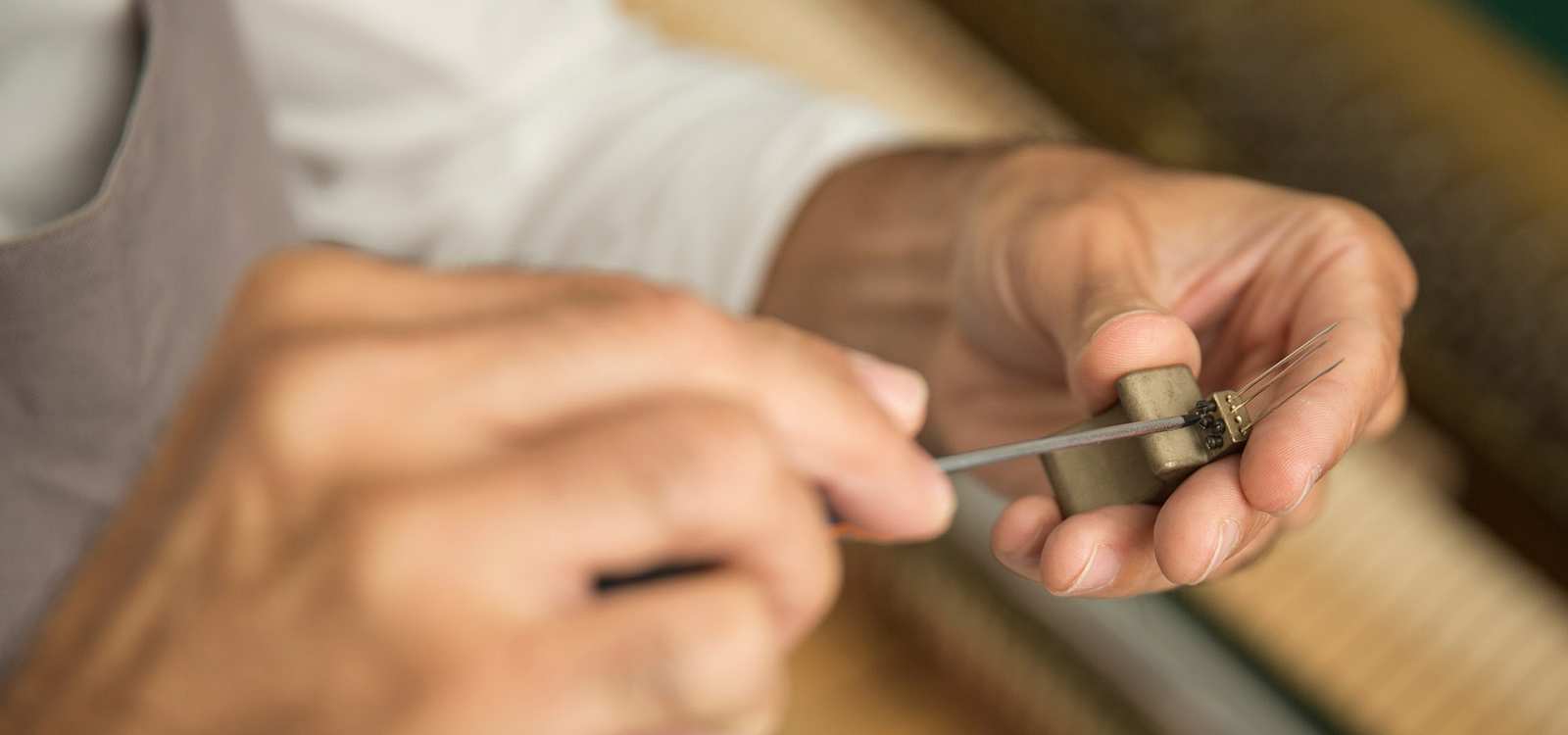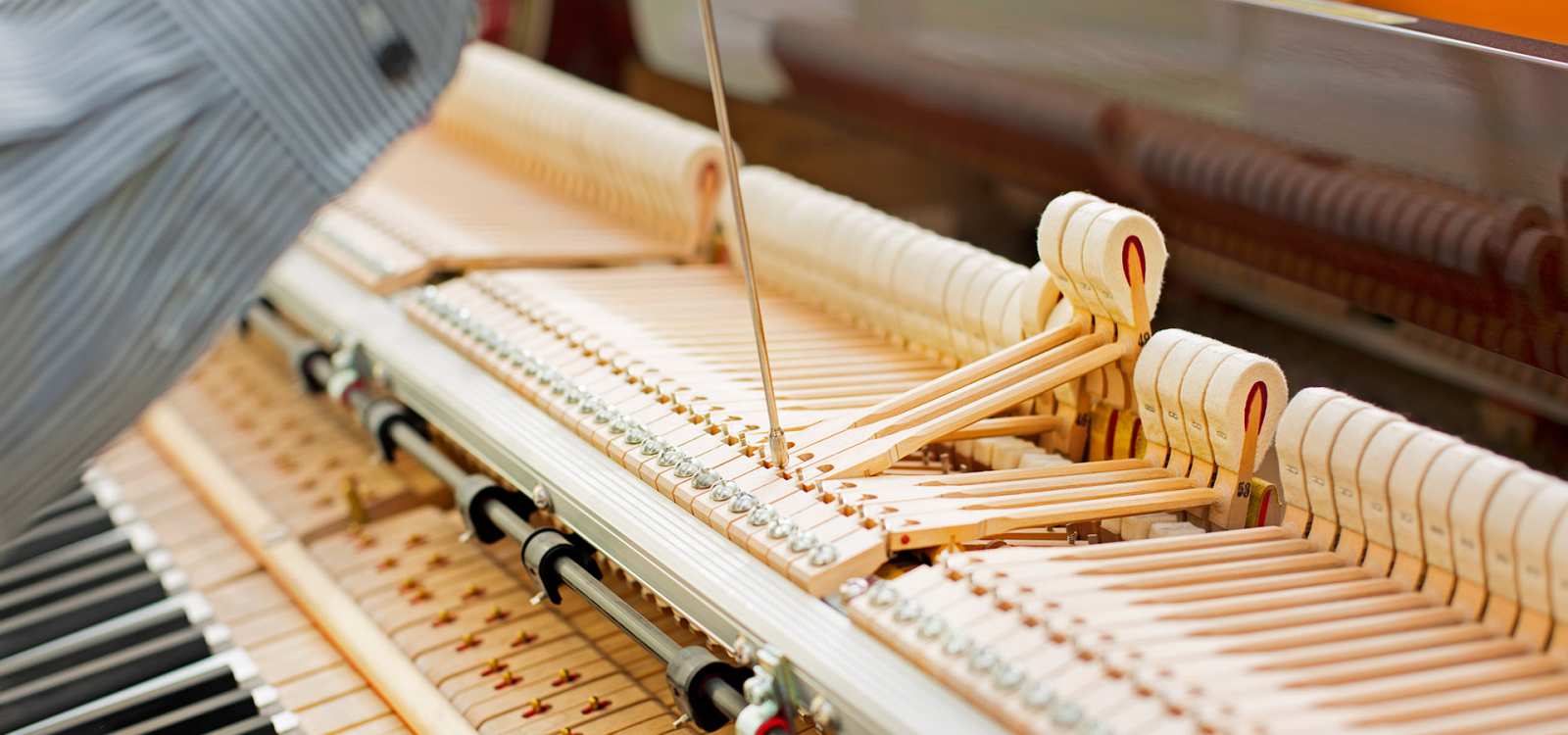Piano preparation for concerts
Before a concert or recording session, it is advisable to check and tune the piano. Piano maintenance for such events is a demanding task for a specialized technician. While regular tuning is done every 6 months to a year, in contexts like recording studios or concerts, the piano may require multiple tunings per day to ensure a perfect and consistent performance.
In these contexts, piano regulation plays a crucial role. Typically, pianists try out the instrument a few days before the event and, if necessary, request changes or improvements that need to be addressed by the technician. Advanced rehearsals allow the technician to have the necessary time to prepare the instrument in the best possible way.
Professional pianists perform worldwide, in different studios and concert halls, and each piano will be different from the others. Unlike other musicians who can bring their preferred instrument with them, pianists must adapt to the piano present at the venue or use a rented instrument for the occasion. During a concert, the pianist may perform a repertoire familiar to their audience and will need the piano not only to be perfectly tuned but also to respond uniformly and reliably to their touch.
In a recording studio, a piece may be recorded in multiple sessions, sometimes on different days or months. To ensure smooth transitions, the piano must always sound and respond the same way. First and foremost, the technician dedicates time to check that everything is in order, such as making sure the wheels are locked and the pedals don't make any noise. The piano bench is checked to avoid squeaking during slow musical passages.
Next, the piano's mechanics are inspected, ensuring that all keys are aligned, the dampers lift evenly, and the regulation is friction-free. Ideally, these operations are performed before transporting the piano to the event location. However, if that's not possible or if the piano is owned by the venue itself, a thorough check is done directly on-site before tuning.
The pianist performs a trial and may request adjustments to the touch or tone if certain notes don't meet their satisfaction. They might desire a richer, rounder, less dark, sharper, less metallic, or more responsive sound. The technician must interpret the pianist's needs and make the necessary changes within the established timeline, before the concert or the start of the studio recording.

 Italian
Italian